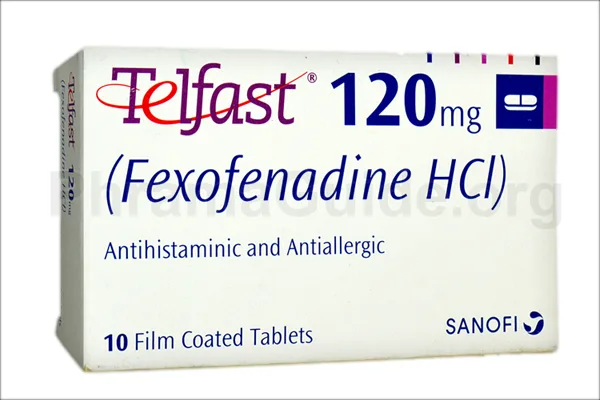Telfast is an antihistamine medication commonly used to relieve symptoms of allergy, such as hay fever, hives, and allergic rhinitis. It is generally considered to be a non-sedating antihistamine, which means it is less likely to cause drowsiness compared to older antihistamines. However, like any medication, Telfast may cause side effects in some individuals. Here are some common and less common side effects associated with Telfast.
Common Side Effects
- Headache: Some people may experience headaches while taking Telfast.
- Dry mouth: Telfast can cause a dry feeling in the mouth, which may be accompanied by throat irritation.
- Nausea: Some individuals may experience mild nausea as a side effect of the medication.
- Dizziness: Though less common than with older antihistamines, some people may still experience dizziness.
- Fatigue: While Telfast is generally considered non-sedating, a small number of people may feel tired or experience fatigue.
- Menstrual cycle changes: In some cases, Telfast has been reported to cause changes in menstrual patterns in women.
Less Common Side Effects
- Allergic reactions: Although rare, some people may experience allergic reactions to Telfast. Symptoms can include rash, itching, swelling, severe dizziness, or difficulty breathing. Seek medical attention promptly if you suspect an allergic reaction.
- Palpitations: A small number of individuals may experience a sensation of rapid or irregular heartbeats.
- Insomnia or sleep disturbances: While Telfast is generally considered non-sedating, some people may still experience difficulty sleeping.
- Nervousness or restlessness: In rare cases, Telfast may cause feelings of nervousness or restlessness.
- Gastrointestinal issues: Less common digestive side effects may include stomach pain, diarrhea, or constipation.
- Elevated liver enzymes: There have been reports of increased liver enzyme levels in some individuals taking Telfast, though it is infrequent.

What is Telfast?
Telfast is one of the leading brands of Fexofenadine, manufactured and marketed by Sanofi Aventis (Pakistan) Ltd.
Telfast : Available Formulations and Strengths
Presently, Telfast is available in tablet form.
Telfast Tablets : 60mg, 120mg, and 180mg strengths.
What Are The Possible Drug Interactions of Telfast?
- Antacids containing aluminum or magnesium: Taking Telfast with antacids that contain aluminum or magnesium may decrease its absorption. It is advisable to space the administration of Telfast and antacids by at least 2 hours.
- Fruit juices: Drinking fruit juices, especially grapefruit, may decrease the absorption of Telfast. It’s recommended to take Telfast with water.
- CYP3A4 inhibitors: Telfast is minimally metabolized by the liver, and interactions with medications that inhibit the CYP3A4 enzyme are unlikely. However, it’s always a good idea to inform your healthcare provider if you are taking any medications that might affect liver enzyme activity.
- Erythromycin or ketoconazole: While the risk is low, co-administration of Telfast with erythromycin or ketoconazole may increase Telfast levels in the blood. If you are taking these medications, your healthcare provider may monitor you for potential interactions.
- Other medications: Always inform your healthcare provider about all prescription and over-the-counter medications, as well as any herbal supplements or vitamins you are taking. Though significant interactions with Telfast are uncommon, individual responses to medications can vary.

Leave A Comment